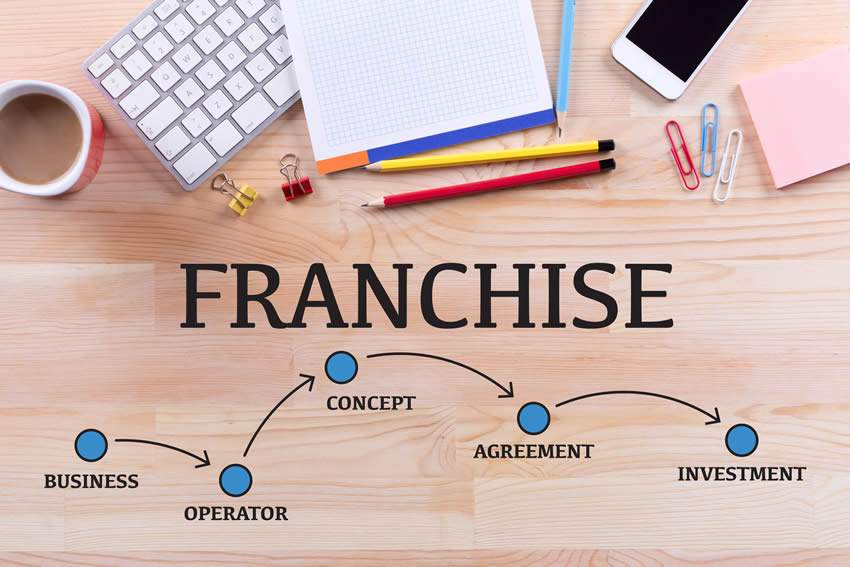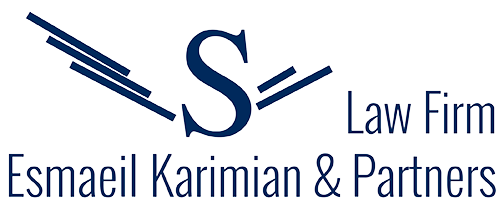Franchise and Franchising
1. The Concept of the Franchise
Franchising is one of the ways to enter the foreign markets that has a structure similar to a concession. In a franchise, three parties to the relationship can be imagined: the franchisor; franchisee, and the right to use innovation or pattern.
The franchisor assigns the trade name, company name and product, and provides services such as the supply of raw materials, training, equipment and financial resources to the franchisee. In fact, a franchise gives a company the authority to sell another company’s products. Franchising licenses the use of technical knowledge, operating methods, brand, or patent to another company.
Franchising is one of the manifestations of countries’ market movement towards a market economy. This business method leads to the continuation and development of jobs at the transnational level, which leads to the prosperity of trade and exports to other countries, and by creating employment, provides the ground for the distribution of products and making more profit.
ESK Internationla Law Firm
Our team is composed of highly skilled and versatile lawyers who combine practical experience and academic knowledge of their field. Most of our practitioners have worked in different professional environments, often outside their home jurisdiction.
2. Franchising Usage
Today, a significant percentage of the world’s consumer products are supplied by franchisors. One of the most well-known examples of the franchise in the world is McDonald’s, which provides its brand, raw materials, necessary training, and advertisements to individuals and companies that are interested in delivering the brand’s products to consumers in every corner of the globe. In fact, MacDonald is not a hamburger seller, but a business that sells its branches. For this reason, perhaps one of the best options for those who do not have special expertise and capital is the franchise. The franchising industry also provides the opportunity to organize the small scattered investments in the country and use them for the huge economic movement of the country.
On the other hand, due to the interdisciplinary nature of studies in this business structure, it brings together disciplines such as management, anthropology, economics, and international trade, which are in fact a platform for the movement of public policy towards development.
3. Requirements for Getting a Franchise
Once you have chosen your field of work, you need to determine the amount of capital you intend to invest in it. Of course, the franchisor will usually give you an estimate of the initial capital required, however, your knowledge of the amount of capital you intend to invest in this business will be very important during the next steps.
It is a good idea to consult with a solicitor or a law firm that has useful and documented franchise experience before engaging in such activity. Such legal experts must have sufficient information about the laws, regulations and structure of the franchisor country to inform you about the limits of your authority and responsibilities. Also, the international rules governing the franchise and the specific rules of each trademark for granting concession are other important points that it is better to leave to your trusted legal firm.

4. Franchising in Iran
In Iran, the “Law on Patents, Industrial Designs and Trademarks”, provides a suitable platform in the field of intellectual property rights has been provided to attract franchises. Of course, the lack of specific franchise laws and the opposition arising from Article 44 of the Constitution in tightening anti-competitive conditions have created the necessary legal grounds for the development of this issue in the country and requires better legal reform and legal changes to achieve better function.
On the other hand, due to the imposition of economic sanctions on Iran, reputable global businesses, despite their desire, are not able to operate in the country, and in this regard, the Iranian market is inefficient for them. Also, the technical knowledge required to launch domestic franchising in the country has serious weaknesses. Owners of successful businesses and well-known domestic brands are afraid of giving their concessions to other companies and are worried about losing the quality of the products offered and their reputation. However, if domestic trademarks react more positively to this, it will cause an industrial and production cycle in the country and will allow the presence of reputable Iranian brands in the world.
5. Important Points in Getting a Franchise
When you get a franchisee, you are essentially a follower of the original franchisor. This means that personal creativity will be less involved in the work and you will have to follow the main policies set by the franchisor and maybe even the managerial changes or grand strategies of the parent company will affect your business.
You should always pay a royalty to the franchisor and the value-added you earn during the job belongs to him, not you! But none of these diminishes the franchise’s appeal as a high-yield business, because innovations, planning, manpower training, supply of raw materials, branding, and advertising have already been done elsewhere, and you have fewer problems for such issues in your own business.
ESK Law Firm and Franchising Services
In representing franchisors we routinely assist them in structuring franchise programs, preparing franchise documents and registering them in the countries that require registration of franchise offerings.
We also assist our clients in expanding their franchise programs internationally, and in helping franchisors based in other countries introduce their systems into Iran. We have assisted clients in establishing and administering franchise compliance programs, franchise advisory councils, and in establishing advertising associations.
ESK attorneys are also experienced in representing area development, master franchise and sub-franchise systems, and in assisting clients with licensing and technology agreements. ESK also advises clients in mergers and acquisitions of franchise companies.
We have significant experience in reviewing leases and real estate purchase and sale agreements for franchise systems. We have also advised non-franchised distribution systems with respect to franchise laws, business opportunity laws and other laws that may affect them.
ESK provides a full range of legal services to meet the needs of franchisors. In addition to our expertise representing Iranian franchisors domestically, our attorneys specialize in helping Iranian franchisors expand internationally and in helping non-Iranian franchisors develop in Iran.
We pride ourselves on the personal attention that our attorneys provide to clients. We are committed to learning about our clients’ businesses so we can better identify and address client needs. We use our resources, including our associates and legal assistants, to promote efficiency, but never as a substitute for the personal attention of the principals with whom our clients have developed trusting relationships.
Our team advises both franchisors and franchisees on franchising, trade practice requirements, and the relevant code requirements, including reviewing contracts and agreements, leases, intellectual property protection, and dispute resolution.
